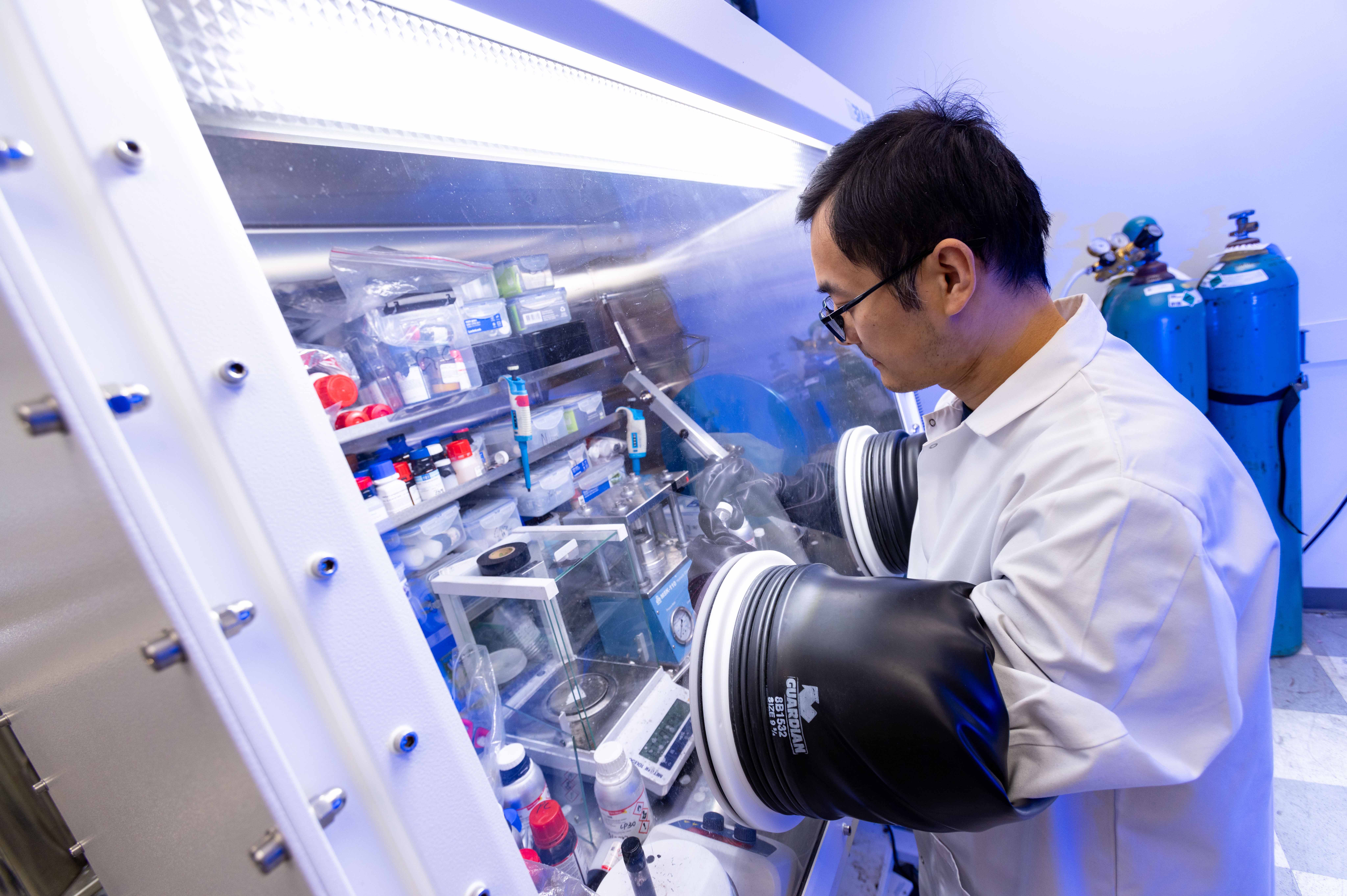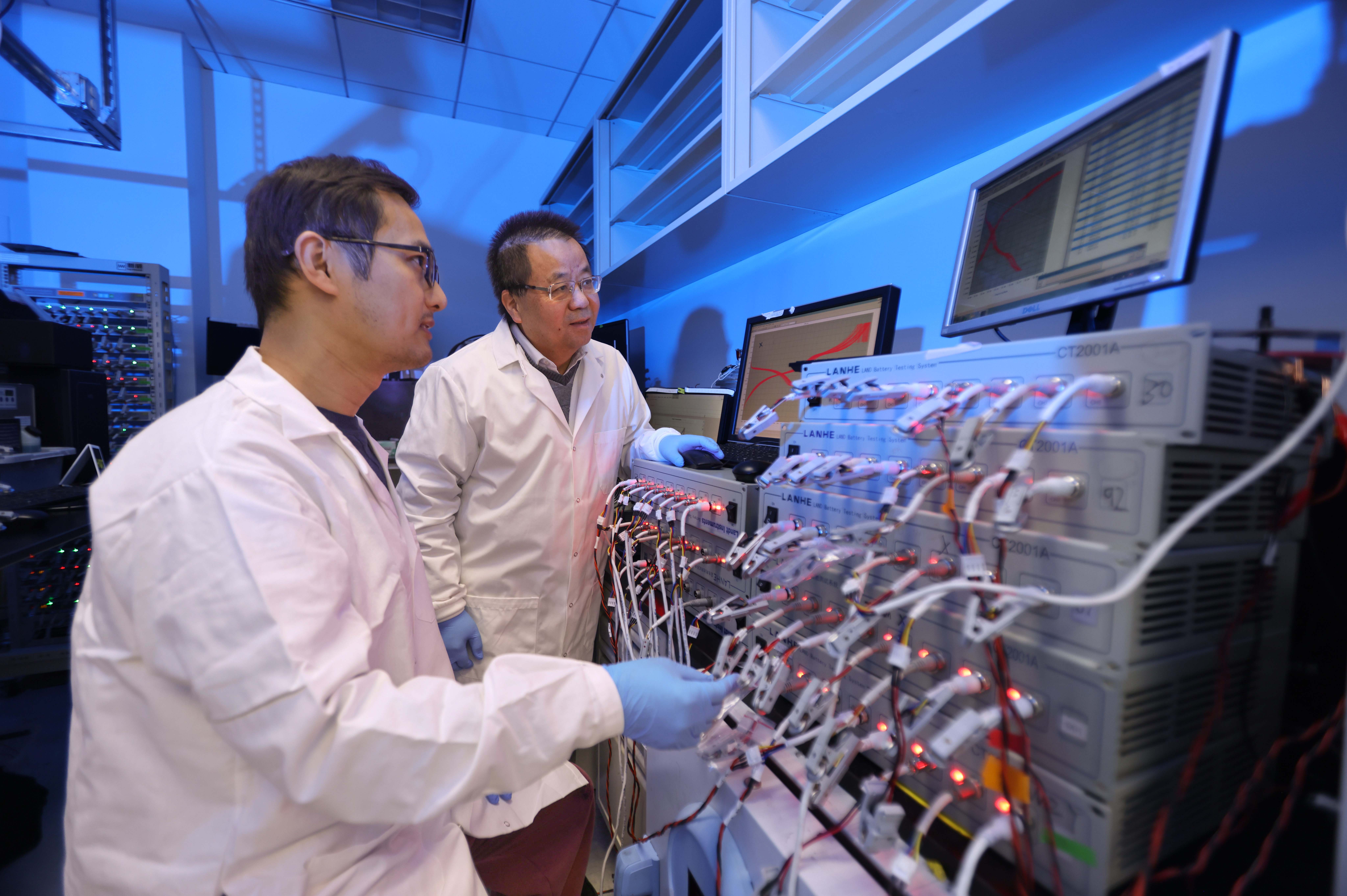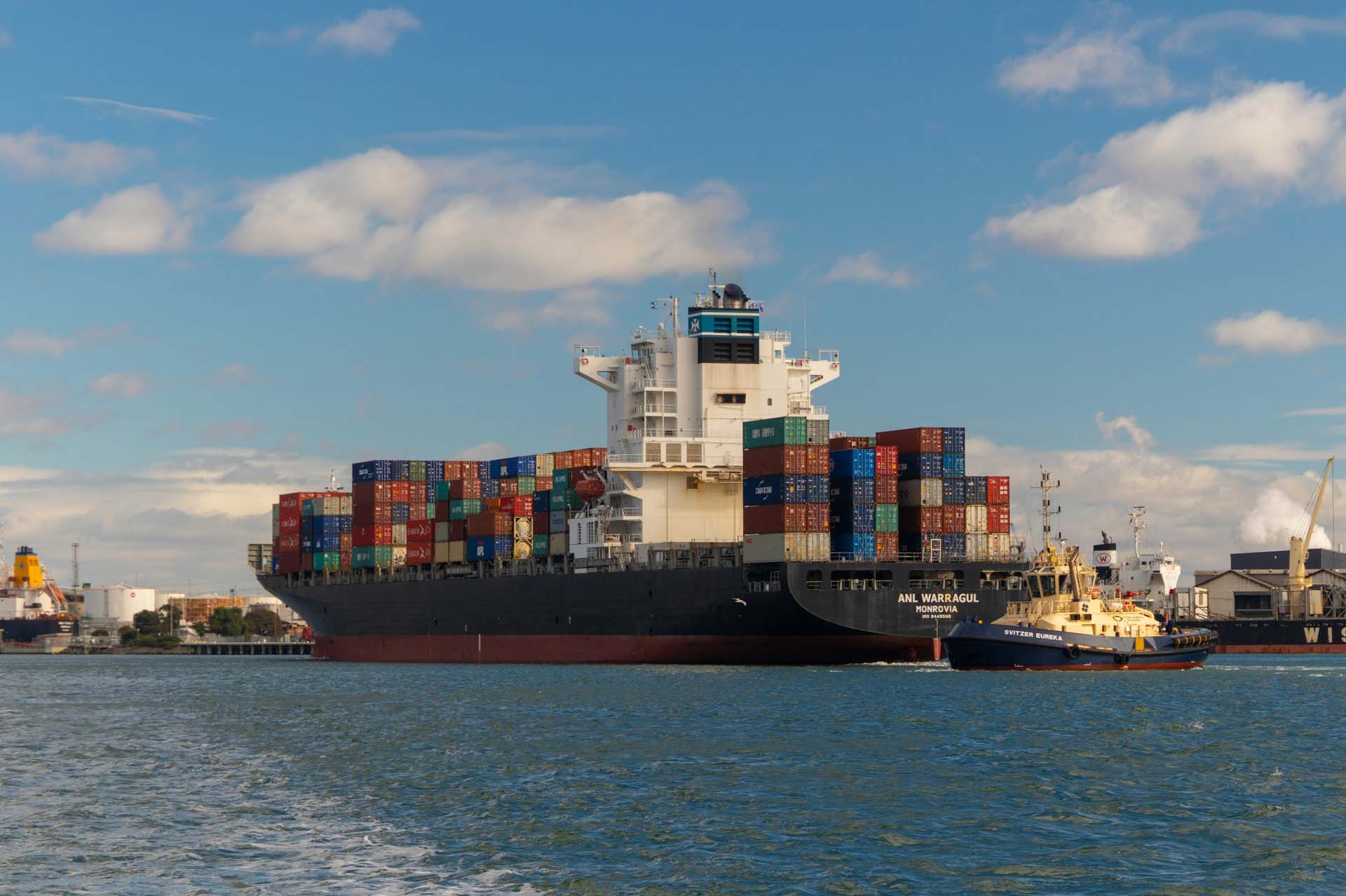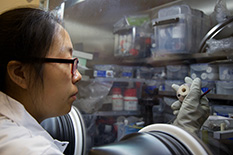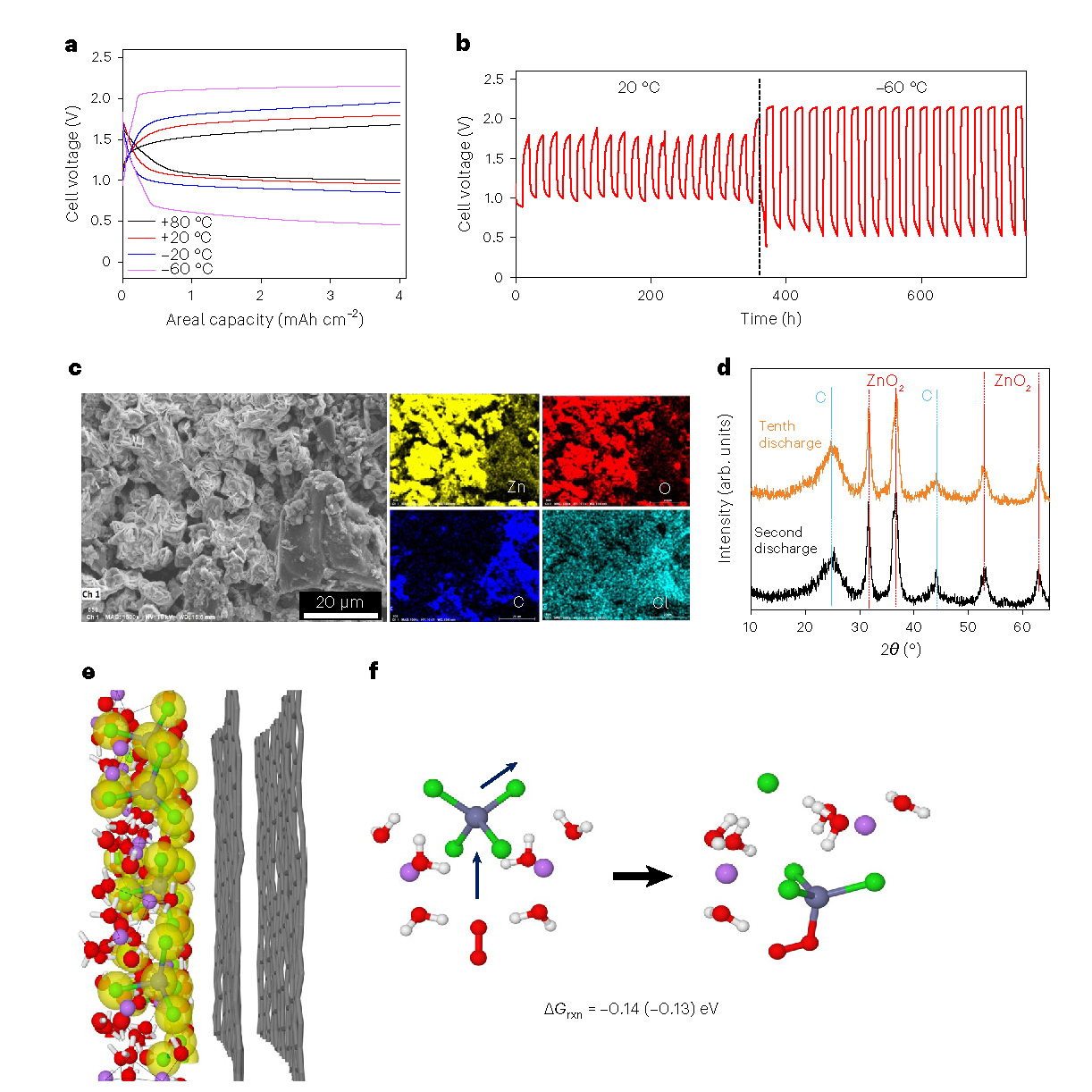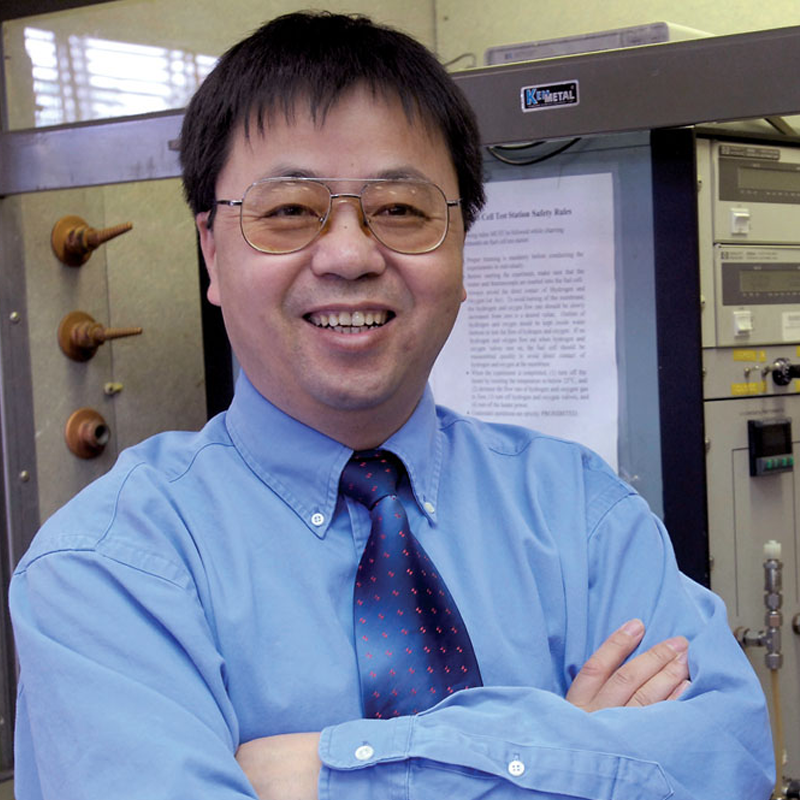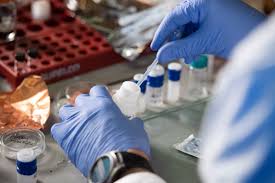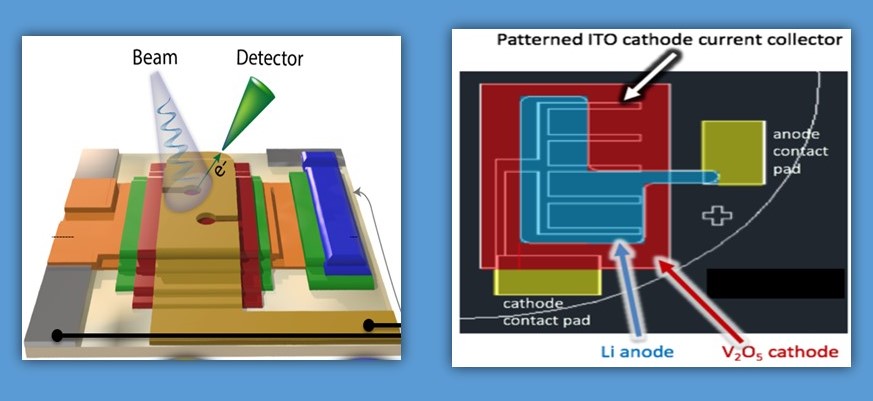News Story
UMD Joins $50M Sodium-Ion Battery Innovation Partnership
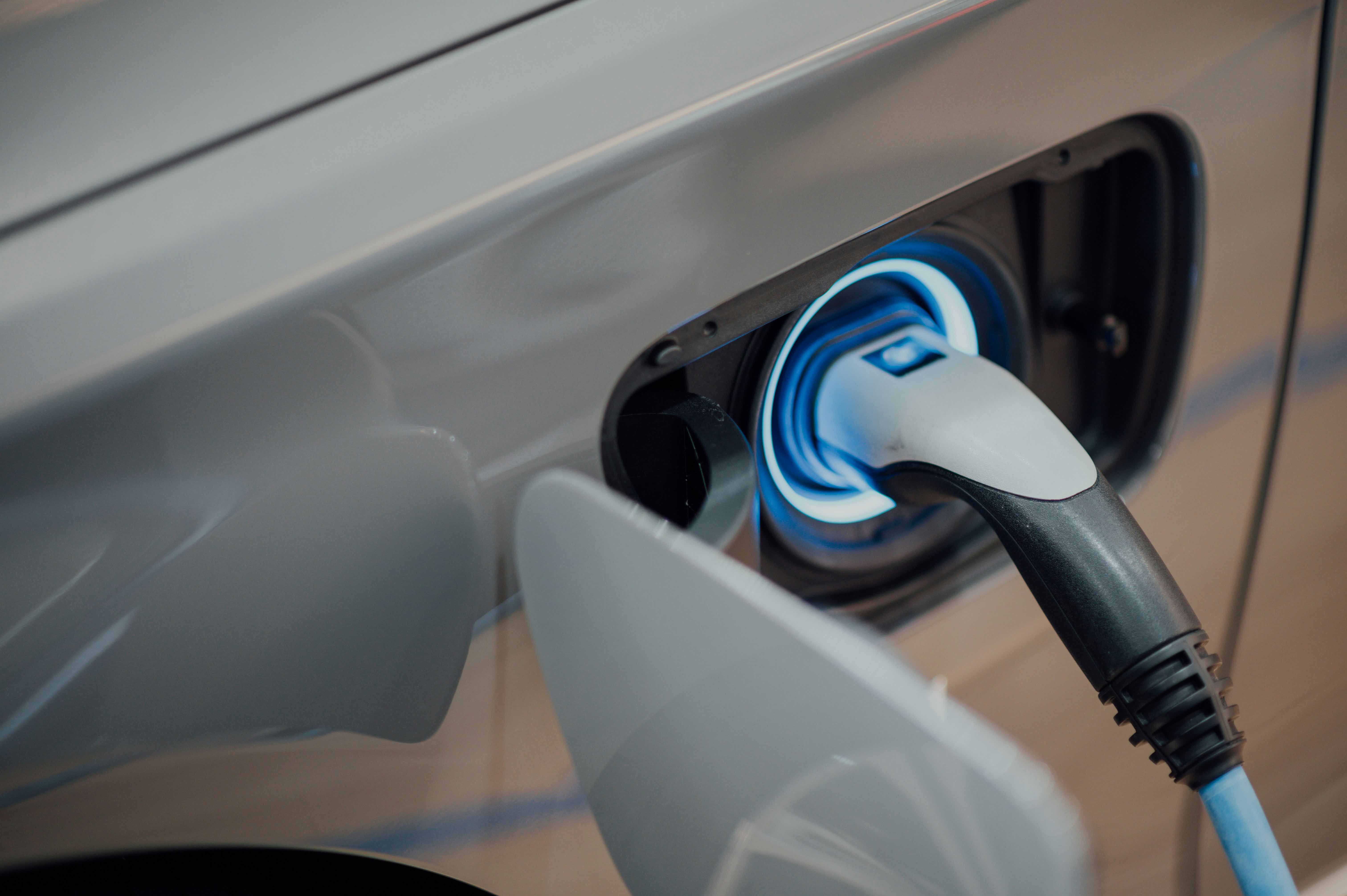
The University of Maryland joined a $50 million partnership to accelerate sustainable technologies for electric vehicles and stationary storage—an effort led by the Department of Energy’s (DOE) Argonne National Laboratory.
Over the next five years, the DOE’s $50 million award will support the Low-cost Earth-abundant Na-ion Storage (LENS) consortium, a collaboration between 14 institutions that aims to develop high-energy, long-lasting sodium-ion batteries using safe, abundant and inexpensive materials.
The initiative will address a critical need to reduce U.S. dependence on the limited and strategically important elements used in lithium-ion batteries, paving the way for a more sustainable future in electric-vehicle technology.
At present, lithium-ion batteries dominate the global energy storage market for both vehicles and stationary storage. They power devices ranging from smartphones to electric vehicles and can store energy from renewable sources like solar and wind. However, relying on any single battery chemistry creates vulnerabilities, and the dominant technologies today include the critical elements of lithium, cobalt and nickel. Sodium, as an abundant element, can reduce risk and increase supply chain resilience by providing a wider variety of cost-effective options.
The U.S. is particularly well-suited to supply both the raw materials and innovation for sodium-ion technology because the country produces a substantial amount of the world’s sodium chloride (table salt) and sodium. Sodium-ion batteries have the potential to eliminate not just lithium in some applications, but also cobalt and nickel—providing a more affordable and sustainable solution.
However, sodium-ion batteries store less energy per unit weight and volume, which results in a lower driving range—a stumbling block to such batteries competing with lithium-ion batteries.
“The challenge ahead is improving sodium-ion energy density so that it first matches and then exceeds that of phosphate-based lithium-ion batteries while minimizing and eliminating the use of all critical elements,” said Venkat Srinivasan, director of the LENS consortium and of the Argonne Collaborative Center for Energy Storage Science (ACCESS). “Importantly, any improvements must not compromise other performance metrics such as cycle life and safety.”
To achieve this goal, Argonne has convened a world-class team of researchers from national laboratories and universities. Each participant brings deep experience studying sodium-ion batteries. Collectively, they will work to discover and develop high-energy electrode materials, improve electrolytes, and design, integrate and benchmark battery cells.
The consortium includes DOE’s Brookhaven National Laboratory, Lawrence Berkeley National Laboratory, Pacific Northwest National Laboratory, Sandia National Laboratories and SLAC National Accelerator Laboratory. The university partners include: Florida State University, University of California San Diego, University of Houston, University of Illinois Chicago, University of Maryland, University of Rhode Island, University of Wisconsin–Madison and Virginia Tech.
“We are very excited to be part of this team. UMD’s work will focus on developing advanced electrolytes that enable sodium-ion batteries to achieve a long cycle life in wide temperature ranges, with the capability of fast-charging,” said Chunsheng Wang, a professor in the Department of Chemical and Biomolecular Engineering and the investigator involved with LENS.
With the involvement of all 14 partners, LENS will play a key role in training a new generation of battery scientists and researchers. Additionally, an advisory board comprising well-established and emerging companies will provide the consortium with valuable industry perspectives, with the goal of nurturing a U.S. ecosystem for sodium-ion batteries.
LENS, which is supported by the DOE’s Office of Energy Efficiency and Renewable Energy’s Vehicle Technologies Office, will be part of a growing portfolio within DOE on sodium-ion batteries, which includes research into the use of this emerging chemistry in electric vehicle and grid storage applications.
Published November 25, 2024

